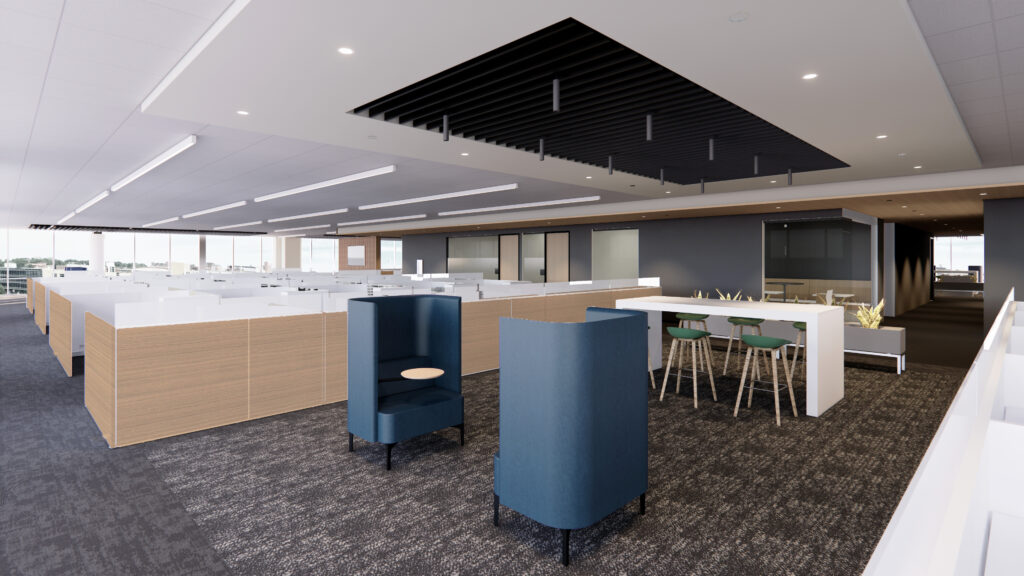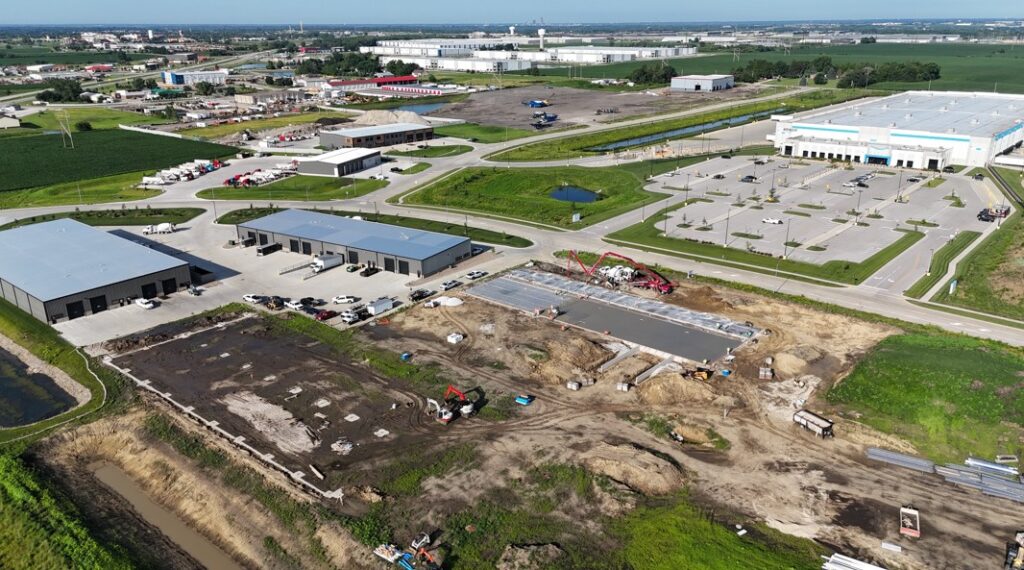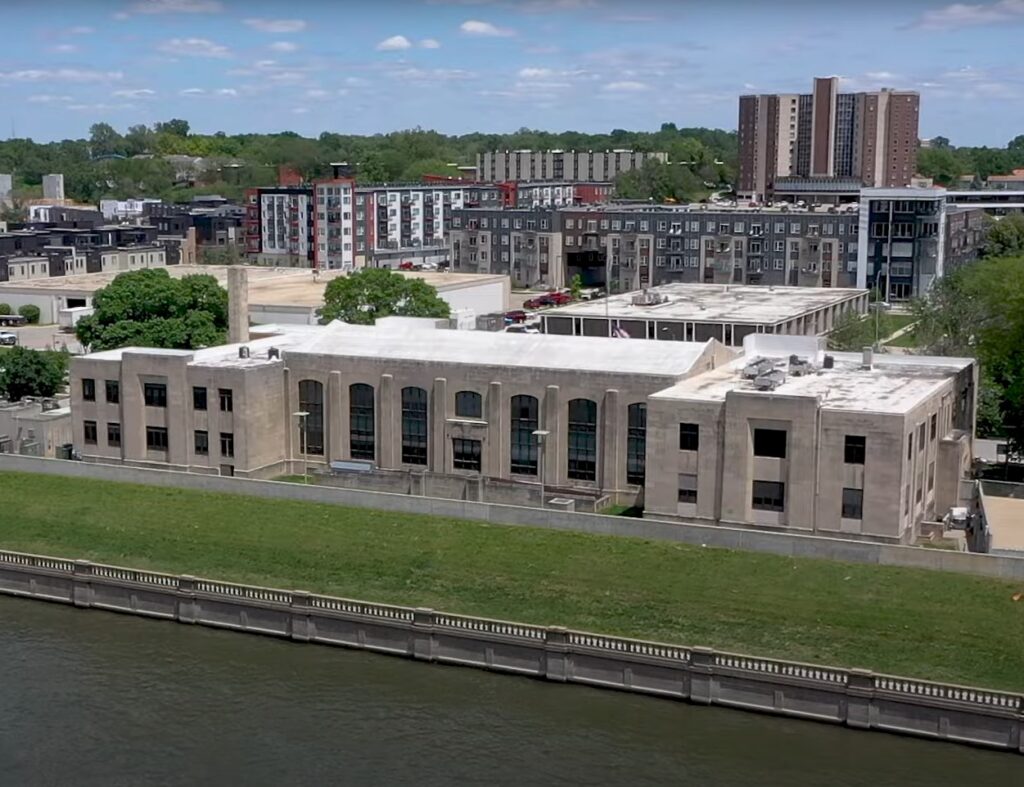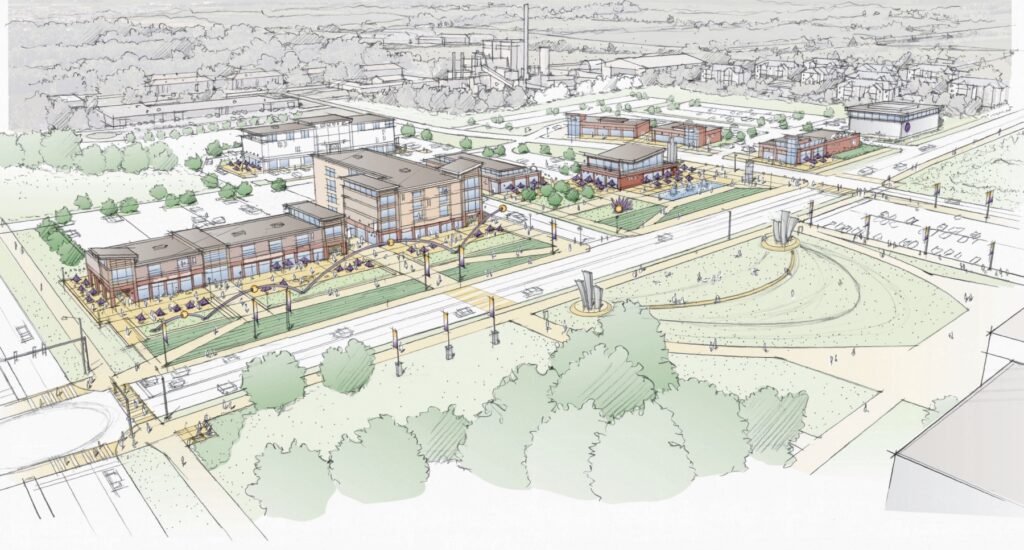A stabilizing influence

Heidi Wessels is breathing a little easier these days, although each breath comes between the rapid-fire sentences she delivers when talking about Neighborhood Development Corp., where she has been executive director since February.
“I never saw the rosy picture” of easy money that lenders were delivering to development projects prior to the collapse of credit markets and the tight lending conditions that resulted, she said.
For Wessels, that meant searching most of this year for a lender to pick up about $1.2 million in loans that were coming due at California-based Bank of the West.
Neighborhood Development Corp., or NDC, was created in 1999 as a nonprofit corporation assigned the mission of rehabilitating low- and moderate-income neighborhoods. It renovates old buildings, constructs new ones and in the process is expected to improve employment in those areas.
Its work can be seen in Sherman Hill, along the Sixth Avenue corridor north of University Avenue and along a block of what longtime residents might call spectacular redevelopment on East Grand Avenue between East 15th and East 16th streets.
NDC receives $1 million a year from the city of Des Moines under agreements that expire every five years. The current agreement runs through 2012. The agency is expected to use 80 percent of the money on development efforts. It can spend up to $100,000 each year on operation costs.
Some of NDC’s projects have been financed under mortgages with the Neighborhood Finance Corp., a nonprofit lender whose focus is to provide funding for the purchase and rehabilitation of residential properties.
NDC fits the bill because many of its projects involve renovating structures that serve as mixed commercial and retail space on one floor and apartments on the next. This is a common practice among private developers, who follow the theory that “residential cash flow carries commercial.” In other words, the financial vagaries of operating a clothing store on the first floor can be offset by the certainty of rental income from apartments on the second.
It isn’t a fancy business plan, but one that makes sense for a nonprofit that must generate income from the properties it acquires, renovates, leases or sells.
“I’m not a tremendous risk taker,” Wessels said.
NDC recently downsized its offices, moving to rented space at the River Hills Office Park on Des Moines Street. Rather than take up 3,400 square feet in an NDC-owned building – space that could be leased to a private party and generate income – Wessels and project manager Jordan Collins occupy a much smaller office where they were allowed to tear out a wall to create open space. It is spartan, with photos of three NDC projects making up the artwork on white walls.
Two desks, a few chairs and a conference table came direct from furniture discounter Ikea, Wessels said, and occupy space where the rent is so low she refuses to talk about it.
“Let me put it this way, our expenses here are about one-third of what they were in our own buildings,” she said.
All of that thrift and sound finances persuaded Community State Bank in Ankeny.to take on NDC’s finances, including the loan that was coming due with Bank of the West.
“You move on, and you’re thankful that people understand what you’re here for,” Wessels said.
What NDC is “here for” is to continue bringing projects that provide some financial substance to distressed neighborhoods.
NDC’s project area is made up of the River Bend, Capitol East, Drake, Fairground,Sherman Hill, Woodland Heights and King Irving neighborhoods.
There are certain businesses that need not inquire about leasing or having a “warm shell” built for them to finish out, Wessels said. Those businesses include liquor stores, discount tobacco shops, payday lenders and adult bookstores – one of which was displaced during construction and renovation along East Grand Avenue.
“I could have leased to those types of businesses 10 times over,” she said.
However, if she provided space for such businesses, “I know that I would get thrown to the wolves,” Wessels said, adding that in her position she plays the roles of “social worker, asset manager, contractor and developer.”
NDC properties are managed by Terrus Real Estate Group LLC, and Koester Construction Inc. has been NDC’s builder of late. The organization does not compete with private developers, Wessels said, noting that if the neighborhoods where the agency is involved were stable, private development dollars would flow into them.
“Our mission is to stabilize neighborhoods and create jobs,” she said.
And, NDC has teamed with private developers on some projects, including Jack Hatch on the Woodland Avenue Brickstones.
The organization is on an even keel. Properties are occupied, loans have been refinanced, neigbhorhoods are on stable financial footing.
“And everybody’s paying their rent,” Wessels said. “We’ve been fortunate, but very cautious.”











